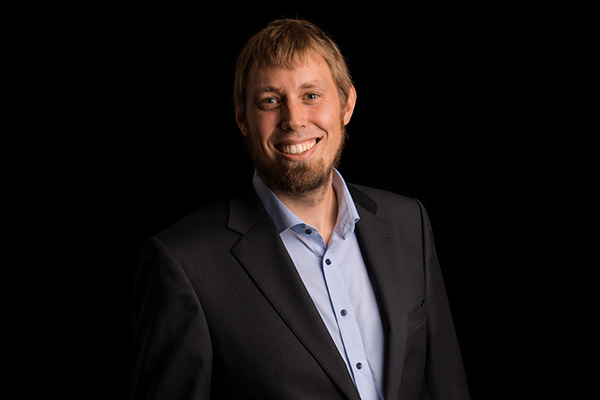Carsten Stefan Malisch
Research leader

Project title
FunctionalForage - Using tannins to reduce the climate impact of ruminant livestock production systems
What is your project about?
Ruminants, such as dairy cows, emit methane and thereby contribute to climate change. On the other hand, they are the only animal that can eat grass and turn it into high quality products for human consumption, such as meat and milk. This is really important, as grasslands remove substantial amounts of carbon from the atmosphere and store it belowground longer than any other agricultural crop, thereby mitigating climate change. This project will therefore include tannin rich plants species (like Bird's-foot trefoil) in grasslands, as tannins have the potential to interact with microbes in the soil and the cow’s digestive system. We anticipate that we will be able to use these interactions to reduce methane emissions and increase soil carbon stocks further. Thus, at the end of the project we will be able to provide fundamental knowledge to achieve a climate friendly dairy production.
How did you become interested in your particular field of research?
I initially had a background in environmental protection studies and only during my PhD, I really went into agricultural sciences. From an environmental perspective agriculture is incredibly fascinating, since it directly contributes to most environmental problems, such as climate change, biodiversity loss and water pollution, but at the same time it is also directly and negatively affected by all of these issues and this should result in a strong motivation to act. Despite all this, the progress to make agriculture sustainable is slow and a lot of this depends on the complexity of the systems. This made it really exciting for me to use my multidisciplinary background to identify ways to understand these complex processes and enhance agriculture's sustainability, while also remaining productive.
What are the scientific challenges and perspectives in your project?
Both the digestive system of cows and soils are really complex, and not only the tannins have an effect on the microbes in both of them, but also the plants that synthesize them. This results in many interactions and none of them have been accounted for with a systematic approach before. My project tackles this by using the most modern analyses from plant chemistry, soil science, animal science and genetics available, which will reveal many new links. It will also use plant species with very pure tannin concentrations and test how purified and extracted tannins affect the microbes in the cow’s digestive system and the soil, compared to tannins in the plant.
What is your estimate of the impact, which your project may have to society in the long term?
It is well known that circular agricultural systems are the most sustainable – this means that animals should eat everything humans cannot eat (e.g. grass and harvest residues) and turn it into nutrient rich excrements, which in turn fertilize our crops. That way, external inputs become minimized. Ruminants are therefore particularly valuable because they can digest grass and fiber, thereby reducing food-feed competition most. Still, if we cannot reduce their impact on the environment, we will be unable to reduce climate impact of agriculture sufficiently. My project will provide the basis to make sure that we can have systems in which ruminants (such as dairy cows) can continue to provide high quality products from circular systems with minimal food-feed competition, and be climate friendly at the same time.
Which impact do you expect the Sapere Aude programme will have on your career as a researcher?
The Sapere Aude grant is an excellent opportunity for me to conduct groundbreaking research in sustainable agriculture, expand my international network and set up my own research group. It will also help me to advance the research in Denmark that looks at ways to integrate livestock into agricultural production sustainably using grazed pastures. In my view, this is an important strategy to complement the existing research into either entirely plant based diets or the intensive barn fed systems.
Background and personal life
I am originally from Freiburg in Germany and have recently moved to Denmark with my wife Friederike and our two kids after stops in Edinburgh, Zurich and Kiel. My main character trait is that I am a multi hobbyist as I cannot seem to limit myself to any particular hobby, and I find it very easy to excite myself about almost anything and always try out new things. I love woodworking, stargazing, setting up wildflower meadows and insect hotels wherever I can, playing board- and computer/switch games, reading, beekeeping, listening to music, cycling, and of course travelling, and I just decided that I now want to learn skateboarding. Between that, my family and my work, I am generally rarely bored.
View all research leaders here
Research institution
Aarhus University
Research field
Agroecology
City of your current residence
Viborg
High school
Theodor Heuss Gymnasium, Germany
